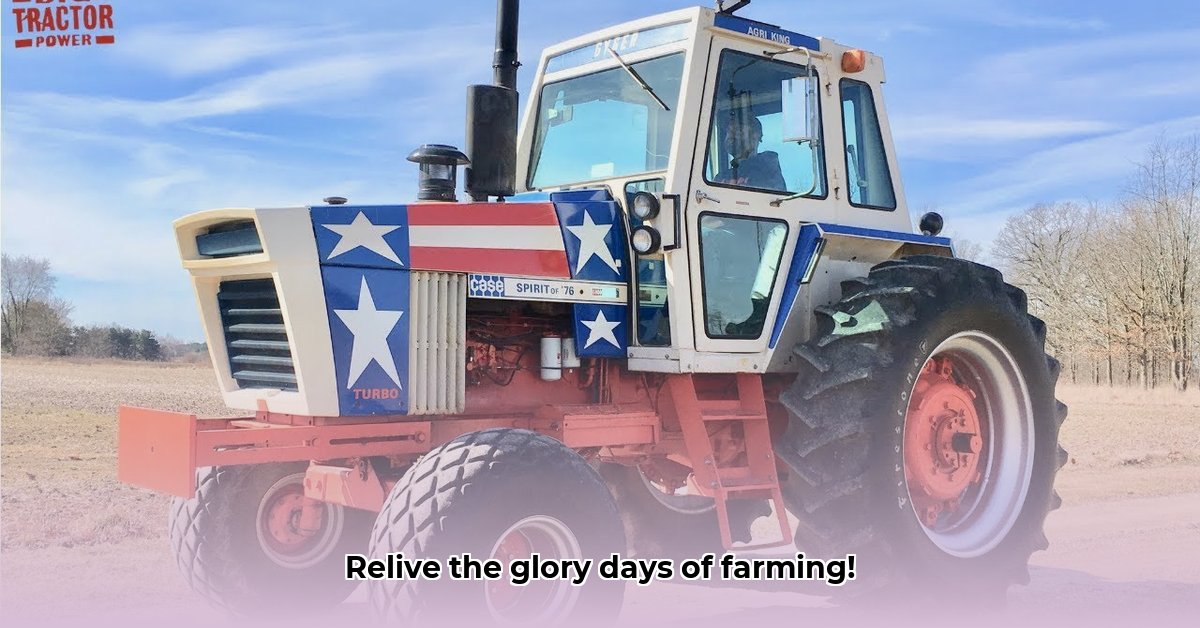
1970s Tractor Powerhouses: Separating Fact from Nostalgia
Remember the iconic tractors of the 1970s? The rumble of their engines, the smell of diesel fuel… a powerful symbol of an era. But declaring one single "best" tractor from this decade is a fool's errand. It's a subjective judgment influenced by nostalgia and individual experiences. This article won't crown a champion. Instead, we'll explore the fascinating world of classic 1970s tractors, examining what makes each model unique and suitable for different needs. For more on classic tractors, check out this resource on older models.
Beyond the "Best" Tractor Myth: Context Is King
Many believe a single "best" tractor reigned supreme in the 1970s. This is a misconception fueled by personal preference and marketing. The ideal tractor depends entirely on the size of your operation and the type of work you need it to perform. A small tractor, perfectly suited for a hobby farm, would be utterly inadequate for large-scale commercial agriculture. What are your specific needs?
Finding Your Perfect Match: Key Considerations
Power and Performance: Horsepower is crucial. Larger farms demand higher horsepower for heavier loads and larger fields. But don't overlook engine type; some perform better under specific conditions. What type of soil will you be working, and how demanding are your tasks?
Reliability: A tractor's dependability is paramount. Thorough research is key. Look at maintenance records, and engage with online communities of owners. Anecdotal evidence, while subjective, offers a valuable insight into a model's long-term reliability. How important is minimizing downtime to you?
Comfort and Convenience: The 1970s saw improvements in operator comfort. Features like air conditioning and power steering were not standard, making their presence a significant factor in overall experience. Consider the climate in your region and the length of your typical workday. How important is operator comfort to you?
Maintenance and Parts Availability: Restoration requires readily available parts. Some tractors offer easy maintenance, while others demand more specialized tools and expertise. Investigate part availability and projected costs before making a decision. How comfortable are you with mechanical work?
Popular 1970s Tractor Models: A Closer Look
Several iconic models stand out, each with its strengths and weaknesses.
International Harvester 1466: Known for its robust power and reliability, the 1466 was a workhorse on many large farms. While powerful, it may require more frequent attention to specific mechanical aspects.
John Deere 4020: This legendary model's robust build and powerful engine have earned it a devoted following. However, sourcing parts and maintenance might require specialized knowledge and resources.
Allis Chalmers D21: This model's reputation is more varied, highlighting the importance of maintaining your machine and the impact of user experience. Some praise its innovative design, while others report reliability challenges.
"The Allis Chalmers D21 was a revolutionary machine for its time," says John Miller, a retired agricultural engineer from Iowa State University. "Its innovative design elements, while sometimes problematic, showcased the industry's forward momentum."
Making Your Decision: Beyond the Specifications
The "best" 1970s tractor remains subjective. It depends on your unique needs and preferences. Consider your farm's size, your budget, and your comfort level with mechanical maintenance. "Choosing a classic tractor is a personal journey," advises Sarah Jones, a vintage tractor enthusiast and restorer. "It’s not just about horsepower; it's about finding the perfect fit for your specific farming operation."
Your Tractor Journey Awaits!
Selecting a classic 1970s tractor is an exciting undertaking. Thorough research, engaging with online communities, and prioritizing your individual needs will guide you to the perfect match. Embrace the journey!